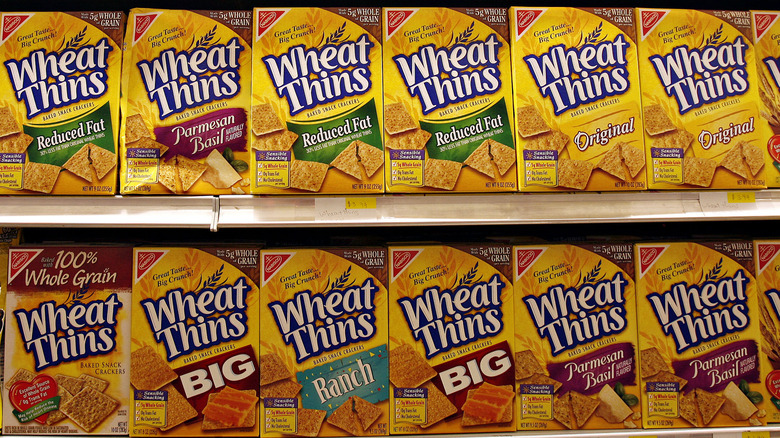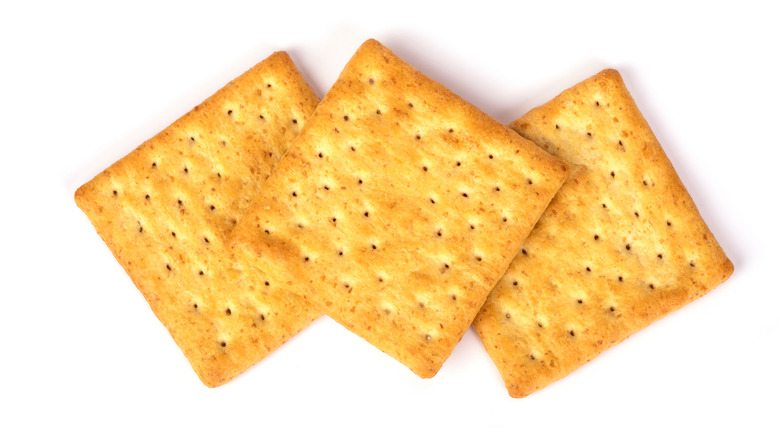The Surprising Reason Wheat Thins Are Banned In Other Countries
America loves its snack foods, from crunchy and salty to sweet and creamy, there is no shortage of things to munch on whenever you want a little something between meals. Strangely, though, a lot of our favorite snack foods are banned in other countries due to the inclusion of some ingredients that other countries have been prohibited from using in their food products. The full list is surprising, containing some seemingly innocuous foods that we wouldn't expect to be banned, like Little Debbie Swiss Rolls, Skittles, Pop-Tarts, and Wheat Thins (via Stacker).
The FDA is more relaxed here in the U.S when it comes to certain ingredients and chemicals that are allowed in our foods, and that causes countries with more strict regulations to forbid some American foods. We've all seen ingredients in our food that we don't exactly recognize, but what is so bad that it's been banned completely in some countries?
They contain BHT, a banned preservative in some countries
According to Statista, Wheat Thins are the fifth best-selling cracker brand in the U.S. However, they are banned in the U.K., Japan, and parts of Europe, because they contain an ingredient that other countries don't allow in their food (via Stacker). Wheat Thins contain BHT, or butylated hydroxytoluene, which is "subject to severe restrictions in Europe" along with BHA (via New York Times). These chemicals are added to preserve freshness in some foods. The New York Times writes that "while evidence on BHT is mixed, BHA is listed in a United States government report on carcinogens as 'reasonably anticipated' to be a human carcinogen."
It may not seem like a huge concern, but "in recent years, studies have shown the potential for BHT to absorb into the food when the temperature of the bag increases" (via Is It Bad For You). BHT is associated with an increased risk of developing illnesses including cancer, thyroid issues, and endocrine complications. So, if you are concerned with the addition of chemicals for preservation, you may want to avoid Wheat Thins.

